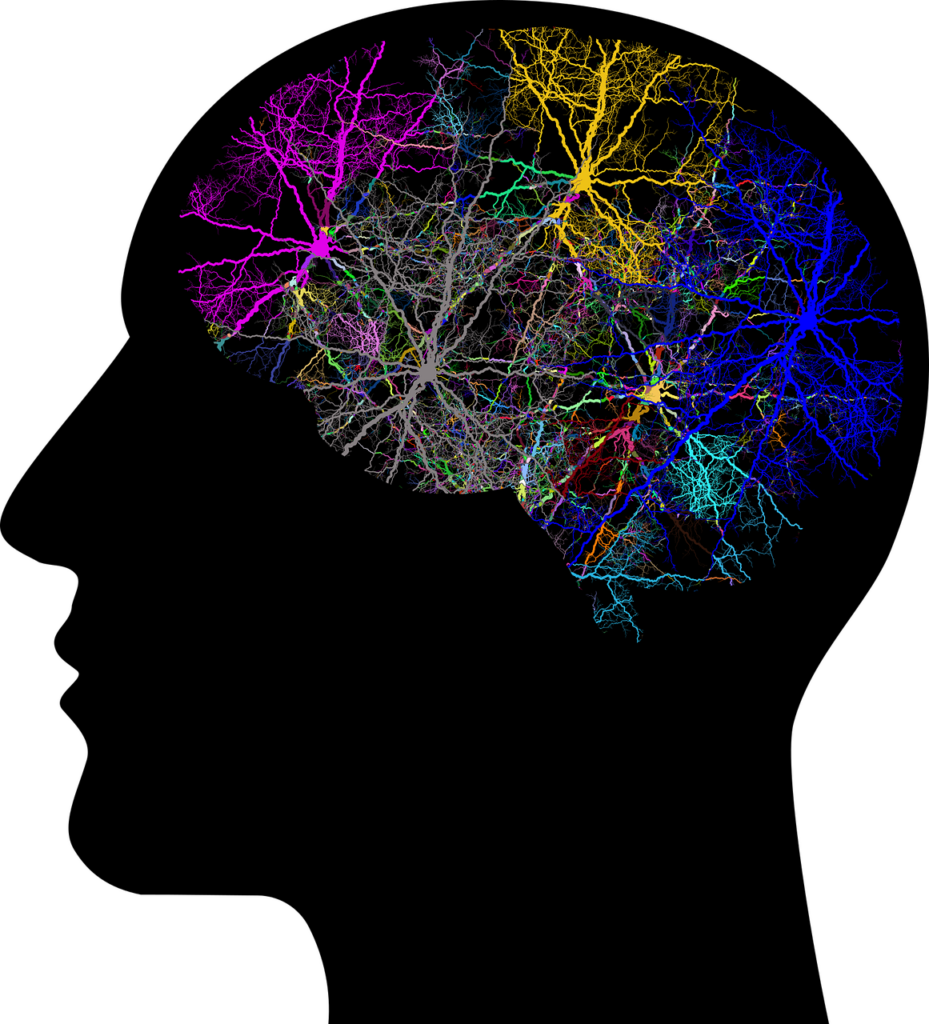Ataul Fatir Tahir, Al Hakam

Do you ever find yourself grabbing a doughnut with ease, yet feeling unable to start the first line of an essay? Have you ever wondered why some things are easy yet others extremely difficult?
If so, you are not alone: All humans are wired to avoid hard things.
Evolutionary biologists and neuroscientists have found that our brains seek to conserve energy and avoid pain to optimise survival. For millennia, our ancestors aimed to save their energy to survive – fighting prey, running long distances to hunt and foraging for food all required high amounts of energy. To maintain energy to survive and thrive, our brain favours comfort and pleasure over pain (hard work).
This is why getting up and going for that run on a cold winter’s day is extremely challenging – your brain is avoiding hard work to conserve energy. Avoiding the doughnut your colleague offers you at lunch also requires willpower (especially if you have a sweet tooth) because your brain is seeking pleasure. However, we no longer have the challenges our ancestors faced and this creates many problems in terms of maintaining our brain’s pleasure-pain equilibrium.
Now, if you fight through the mental barrier (pain) and go for that run, at the end of the run you will feel great as your brain has been flooded with endorphins – one of the “feel-good” hormones. Scientists coin this as “delayed gratification”; you have to work (experience pain) for your reward. Hence the trend of ice baths, saunas, exercise and engaging in anything difficult.
Delayed gratification releases feel-good hormones that last for longer and our overall mental and physical health gets better through this mode of pleasure-seeking.
On the other hand, if you eat the doughnut, your brain will instantly get a shot of the neurotransmitter dopamine, another ‘feel good’ molecule. This is called instant gratification and is highly problematic as it can lead to unhealthy hormonal imbalances in the brain and create addictions.

Dopamine is highly addictive and is the same pleasure molecule that is released into the brain after using cocaine, smoking cigarettes, endlessly scrolling on social media, eating junk food, etc. Our brains then chase the dopamine and as it’s readily available and requires no hard work (often coined as cheap dopamine), we get addicted to an unhealthy behaviour or substance. In simple terms, our brain’s pleasure-pain balance is ruined through constant cheap dopamine releases, which leads to a vicious cycle of chasing short dopamine spikes just to feel normal.
This is where our society lies today. Traps for instant gratification sit in ambush and more often than not, people are chasing cheap releases of dopamine and avoiding hard work. Both neuroscience and evolutionary biology are at work here.
Neuroscientists like Dr Anna Lempke in her book Dopamine Nation, highlight the importance of pursuing delayed gratification to ensure our dopamine system in the brain is balanced. Neuroscientist Dr Andrew Huberman is educating the public through his widely listened-to HubermanLab podcast on the importance of embracing hard work. Dr Huberman explains that doing hard work for the sake of it, gradually trains our brains to enjoy the hard work itself and therefore pursue it.
Prof Huberman advises we also avoid dopamine-stacking, meaning that instead of getting a coffee or putting on music to get started, we dive right into the hard work and overtime our brain will enjoy the hard work itself, instead of relying on dopamine hits from coffee etc., just to get in “the right frame of mind.”
Islam promotes delayed gratification
In the spiritual world, delayed gratification has been well established and religious practices represent this – fasting, praying five times a day, sitting and contemplating over creation, and even giving charity, all of which cause limbic friction and are hard to do.
Over 100 years ago, in India, the Holy Founder of the Ahmadiyya Muslim Community, Hazrat Mirza Ghulam Ahmadas spoke of how the human condition is wired to avoid pain. He said to achieve closeness to God and success in spirituality, one had to push through this natural, pain-avoiding human disposition and instead embrace hard work – worshipping God and serving His creation. This would lead to lasting success in spirituality in this world and the next, just as delayed gratification leads to a healthier brain and body.
While debating the flaws of salvation through mere confession in Christianity, Hazrat Ahmadas said:
“The essential fact is that the human self is somewhat designed to give greater preference to the path in which there is no effort and struggle. True purity, however, requires much pain and striving, and that pure life cannot be attained until man drinks the cup of death. Therefore, just as it is the propensity of mankind to avoid difficult and narrow paths and to seek ways that are easy and simple, in this very manner these people, too, have chosen the way of the Cross that requires only verbal confession and places no hardship upon the soul.” (Barahin-e-Ahmadiyya Part 5 [English translation], p. 53)
The Islamic route requires hard work and grit to achieve delayed gratification in the spiritual realm – closeness to God. Praying five times a day, fasting for a whole month every year (plus voluntary fasts throughout the year), sacrificing money to serve the poor, striving to overcome bad habits and instilling good morals all require relentless hard work. In time, this becomes a self-fulfilling prophecy and we begin to enjoy these good acts for what they are. Add this to the endless studies that show many religious practices make us happier, more fulfilled or better human beings. On top of that, heaven – the ultimate reward for believers – will become the greatest delayed gratification anyone can get.
The Holy Quran speaks of the hard work believers will reflect on in the Hereafter and the reward they will receive:
وُجُوۡهٌ يَّوۡمَئِذٍ نَّاعِمَةٌ لِّسَعۡيِهَا رَاضِيَةٌ
“[And some] faces on that day will be joyful, well pleased with their labour,” (Surah al-Ghashiyah, Ch.88: V.9-10)
Here the Arabic for “labour” comes from سعى meaning to walk vigorously and with speed (Lane) and also means to strive, work hard and labour.
It is also interesting to note that the Arabic word for this “world” (used in the Quran) – dunya – lexically means something that is nearest (Qamus), being within reach and easily attainable. However, the word for “Hereafter” – akhirah – signifies something that is at a distance and comes later.
The Holy Quran, therefore, gives a picture of those believers who will receive delayed gratification in the Hereafter as well – this of course is an addition to the pleasure they experience in this world through their constant worship and good actions.
Another principle in the Holy Quran is:
وَاَنۡ لَّيۡسَ لِلۡاِنۡسَانِ اِلَّا مَا سَعٰى
“And that man will have nothing but what he strives for.” (Surah an-Najm Ch.53: V.40)
Hazrat Mirza Ghulam Ahmadas also received the following revelation which signifies the importance of not always chasing comfort and luxury: “[Persian] My Beloved likes those who discard the life of comfort and luxury.” (Tadhkirah [English], p. 22)
The Islamic concept of attaining spirituality encapsulates hard work, striving and pursuing delayed gratification. By drawing parallels between our physical and spiritual bodies, we can both benefit physically and spiritually.


Knowledgeable.. jazakallah
Great article 👍
Psychologically relevant information.
Excellent piece 👍
excellent.